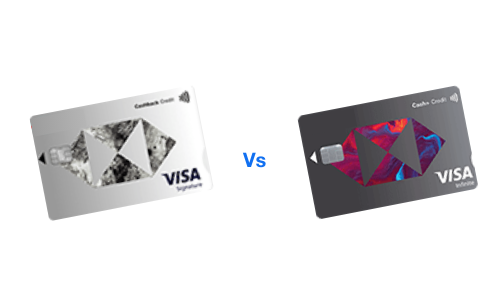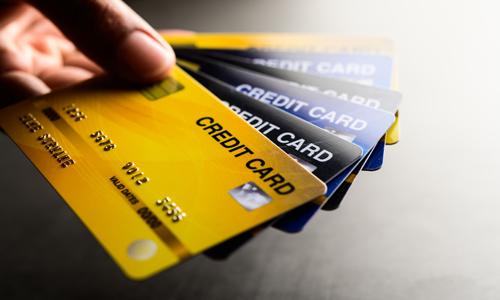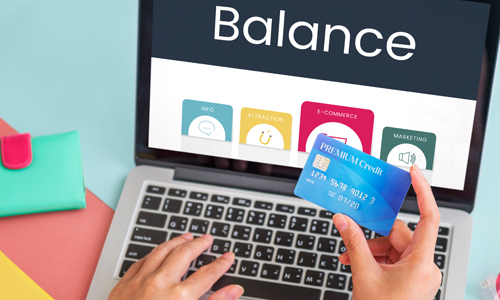- What is a Credit Card Balance?
- How Does Credit Card Balance Work?
- Should You Leave Balance on Your Credit Card?
- How is Your Credit Score Impacted When You Carry a High Balance on a Credit Card?
- Why Should You Not Carry a High Balance on Your Credit Card?
- Things to Remember When It Comes to Credit Card Balance
Carrying a High Balance on Credit Card - To Do or Not to Do?

The practice of carrying a high balance on a credit card from one billing cycle to the next can have far-reaching implications that extend beyond the immediate financial impact. As we consumers navigate the realm of credit utilisation and repayment strategies, it becomes necessary to understand the multifaceted repercussions of sustaining elevated credit card balances.
In this article, we will explore the basic aspects of maintaining a high balance on a credit card beyond the standard billing cycle, shedding light on the potential risks and consequences involved. By examining the broader implications on credit scores, borrowing capabilities, and overall financial well-being, we aim to help you realise why this practice needs careful consideration.
What is a Credit Card Balance?
Your credit card balance represents the aggregate sum that you presently owe on your credit card. This figure grows as you make purchases and diminishes through payments made. Your credit card balance is influenced by purchases, balance transfers, foreign exchange, fees, and interest charges.
Accumulating credit card balances may elevate your credit utilisation ratio, which can lead to a reduction in your credit Score. It's important not to mistake a credit card balance for a statement balance, which is the figure indicated on your issuer's statement.
How Does Credit Card Balance Work?
Credit cards serve as payment cards that grant individuals and business proprietors the ability to make purchases without an immediate need for cash. They provide cardholders with the opportunity to defer payment for their acquisitions, offering a secure and more convenient method of shopping. Unlike physical currency, credit cards are generally accepted globally and often come with added perks like rewards points or cashback incentives.
The balance attributed to your credit card accounts for the total outstanding debt owed to the issuer. This value varies monthly based on your card usage patterns. It comprises various elements, namely -
- Purchases
- Balance transfers
- Foreign currency conversions
- Charges for balance transfers
- Annual fees and cash advance charges
- Interest levied
Equally important for your credit card balance are payments, and it is prudent to settle your statement balance fully before the due date. Should you opt to settle just the minimum payment, the remaining balance will carry over to the subsequent billing cycle and accrue interest that becomes evident on the next statement.
New credit card balances are typically updated within a span of 24 to 72 hours subsequent to the completion of a transaction or payment. The precise duration depends on the credit card company's procedures and the mode of transaction execution.
Should You Leave Balance on Your Credit Card?
Paying off your credit card balance instead of letting the debt revolve is generally a wise choice if you're able to manage so. When your credit card comes with a grace period and you settle the full statement balance each month, you won't be charged interest on your purchases. However, if you maintain a balance, the interest could quickly accumulate on your purchases.
The notion that keeping a balance on your credit card is beneficial for your credit score is not accurate.
If your card comes with an introductory 0% APR promotion, you might contemplate spreading out your payments over time since there's no interest accruing during this period. Yet, it's important to note that maintaining such a balance might impact your credit utilisation ratio and, consequently, your credit scores. Furthermore, once the introductory 0% APR offer concludes, the regular APR comes into effect, which can quickly lead to the accumulation of interest.
How is Your Credit Score Impacted When You Carry a High Balance on a Credit Card?
Excessive usage of your credit card (when the balance reaches the credit limit) can adversely impact your credit score, which represents your creditworthiness through a three-digit numerical value. Experts indicate that an elevated credit card balance might lead to a reduction of over 100 points in your credit score, contingent upon the additional data in your credit report.
Once the proportion of your credit card balance in relation to the credit limit (commonly known as your credit utilisation) becomes excessively high, it can result in a decline in your credit score.
All in all, a higher balance directly translates to a more significant negative impact on your credit score, underscoring the importance of maintaining a low balance to promote a favourable credit score.
Why Should You Not Carry a High Balance on Your Credit Card?
Discussed below are the reasons why you should not carry a high balance on your credit card -
Qualification for New Credit Cards and Loans -
When applying for a new credit card or loan, several factors come into play. One such factor in this list is your existing credit card debt.
If you hold substantial balances across multiple credit cards, it might indicate that you're dealing with more debt than you can handle. This can raise doubts among creditors regarding your ability to manage additional debt responsibilities. Consequently, your application for a new loan might be declined.
Maintaining lower balances, on the other hand, enhances your appeal as a borrower, especially if you're gearing up to seek a mortgage or an auto loan.
Impact on Minimum Payments -
Have you ever observed how your credit card's minimum payment changes relative to your card balance? Typically, minimum payments are calculated as a percentage of your outstanding balance, for instance, 2% or 3%. As your credit card balance increases, your minimum payment also rises accordingly.
Implications of High Balances -
Whenever you don't pay off your balance in full, you incur interest charges, known as finance charges. These monthly finance charges are computed based on your balance and interest rate.
The larger your balance, the greater the finance charges you'll face. Carrying a substantial credit card balance could lead to significant financial costs over time, potentially amounting to hundreds of dirhams annually, particularly if you're only making minimum payments.
Risk of Indebtedness -
Continuously maintaining a high balance could potentially land you in a situation where you've borrowed more than what you can comfortably repay. Debt arises when you consistently borrow more money than you're able to settle.
Having a sizeable credit card balance, especially across multiple cards, exacerbates your debt situation. To prevent this, it's advisable to keep your balances low or, ideally, pay them off entirely.
Reduced Available Credit -
One of the advantages of a credit card is that you can easily arrange funds for various requirements, such as business investments or unforeseen medical expenses, using it.
However, if you're already dealing with a substantial balance, your card's available credit might be limited. With each transaction, the credit card issuer places a hold on a portion of your funds.
If a high balance restricts your available credit, you will need to either reduce your balance, use an alternate card, or, in the worst case, cancel your intended expense. Hence, utilising a credit card with a low balance helps you circumvent this potential issue.
Things to Remember When It Comes to Credit Card Balance
It's advisable to consistently remember these key aspects regarding your credit card balance -
- Having a significant credit card balance exposes you to various potential hazards, such as harming your credit rating and experiencing limitations on your available credit.
- By increasing your monthly credit card payment, you can speed up the reduction of your credit card balance.
- When dealing with multiple credit cards with substantial balances, concentrating on decreasing one balance sequentially proves more efficacious than attempting to settle them all simultaneously.
Policybazaar UAE – Helping you navigate the wilderness of the insurance world!
More From Credit Cards
- Recent Articles
- Popular Articles



















